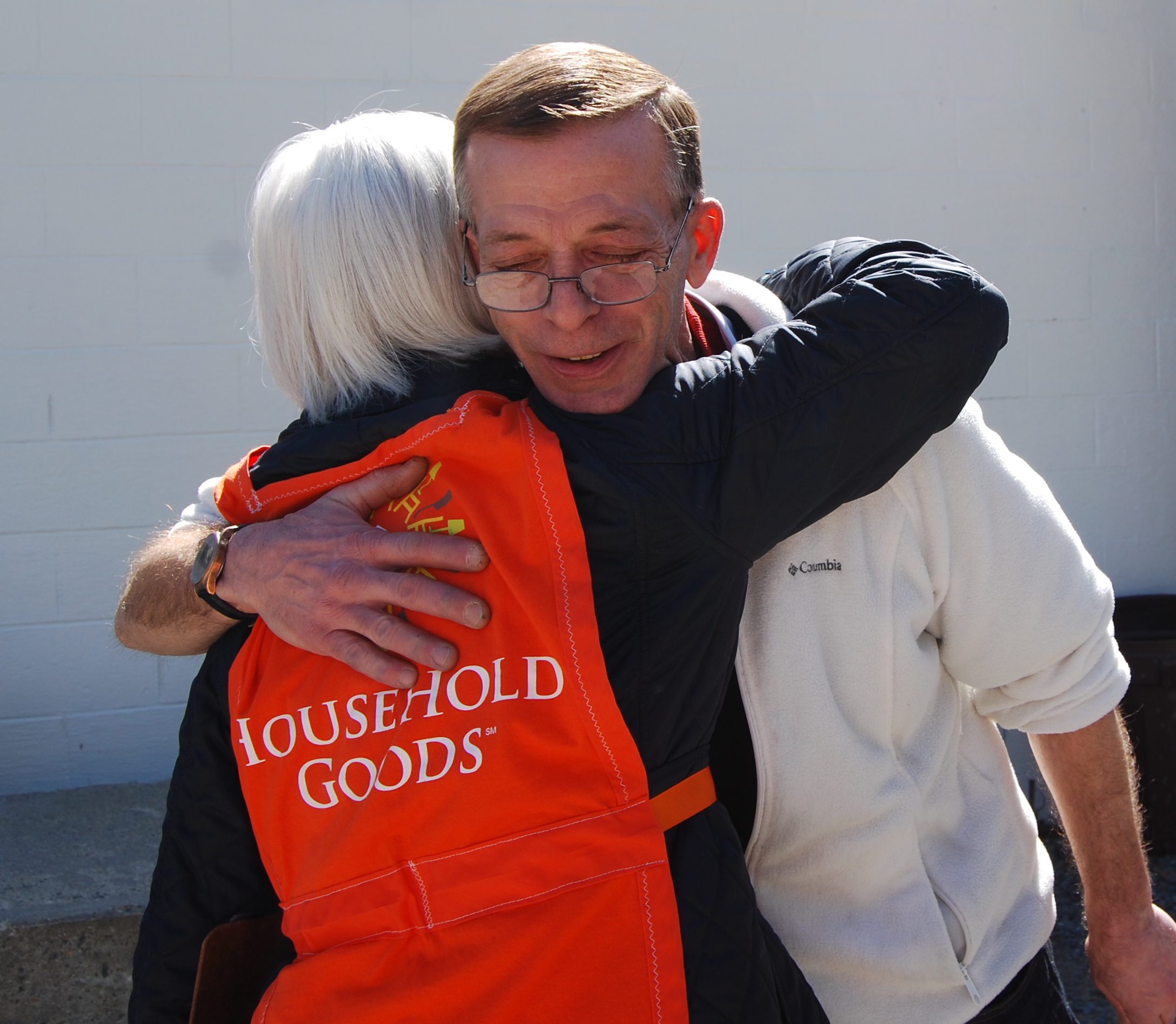Throughout Massachusetts, thousands of individuals and families are living without the basic furniture and household goods most of us take for granted. For those fortunate enough to secure housing, the high cost of rent, utilities, medical care, child care, transportation, food and other ongoing needs often makes the purchase of even the most essential furnishings – beds and bedding, a bureau, a kitchen table and chairs, a sofa – simply impossible.

Each year Household Goods furnishes over 2,500 homes with 60,000 pieces of furniture and smaller household items. Many of the people who need Household Goods are recently homeless, veterans, survivors of domestic violence, low income, single parents, victims of disaster, or are coping with illness or disability. They are referred to Household Goods by one of hundreds of social service agencies in Massachusetts. A small paid staff supports the 900 Household Goods volunteers who work 40,000 hours each year to make this possible. Since 2004, Household Goods has furnished 42,531 homes with over 630,000 household items.
Campaign Priorities
Through the Build the Way Home Capital Campaign, Household Goods will make critical improvements to its building and site by building a road that will circle the building, adding an additional 4000 sq.ft. of interior space, and creating a second entrance to receive incoming donations.
Challenge 1: The current driveway dead-ends in front of our building entrance, creating difficulties for our donors, clients, and volunteers.
With up to 150 donors pulling in and backing out to drop off donations in a three-hour time frame, up to 13 clients a day coming to pick up furniture in rented trucks, and teams of volunteers unloading and loading vehicles, improving traffic flow is essential.
We can overcome this challenge by extending the road around the building, creating a safer and more efficient traffic flow.
Challenge 2: Our building is over capacity. We are out of space needed to ensure that donated items are clean, functioning and consistently available for our clients on a daily basis.
We pride ourselves on providing a respectful and dignified experience for the people who come to us for help. We want to ensure that they have plenty to choose from when they arrive, and that the items they select will work well when they take them home. This requires space dedicated to testing appliances and lamps, vacuuming rugs and upholstered furniture, and other basic quality checks. Serving clients seven days per week also requires interior backroom storage space from which volunteers can restock the showroom for the next day.
We can overcome this challenge by building a 4,000 sq. ft. extension to the existing building.
Challenge 3: Having a single entrance to handle the discrete processes of receiving donated furniture and household goods into the building, and then distributing them out to people in need is significantly inefficient.
This configuration requires designating specific hours to serve either donors or clients, as it is impossible to serve both at the same time. It also necessitates having volunteers move incoming donated furniture, appliances, and household items multiple times. Creating a dedicated entrance for donations would reduce the furniture moving burden on volunteers, and creates the potential to expand hours to better accommodate both donors and clients.
We can overcome this challenge by creating a second entrance to receive incoming donations.
